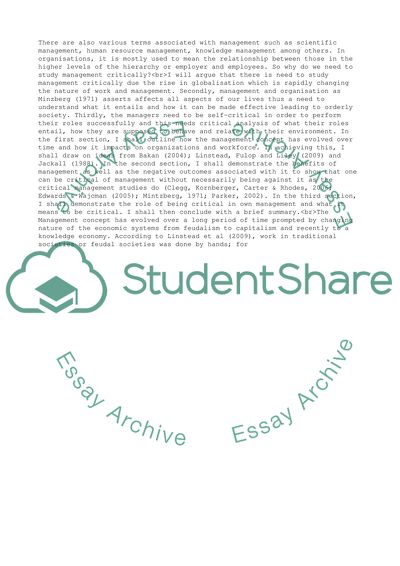Cite this document
(“What does it mean to study management critically Essay - 1”, n.d.)
Retrieved from https://studentshare.org/management/1610197-what-does-it-mean-to-study-management-critically
Retrieved from https://studentshare.org/management/1610197-what-does-it-mean-to-study-management-critically
(What Does It Mean to Study Management Critically Essay - 1)
https://studentshare.org/management/1610197-what-does-it-mean-to-study-management-critically.
https://studentshare.org/management/1610197-what-does-it-mean-to-study-management-critically.
“What Does It Mean to Study Management Critically Essay - 1”, n.d. https://studentshare.org/management/1610197-what-does-it-mean-to-study-management-critically.


